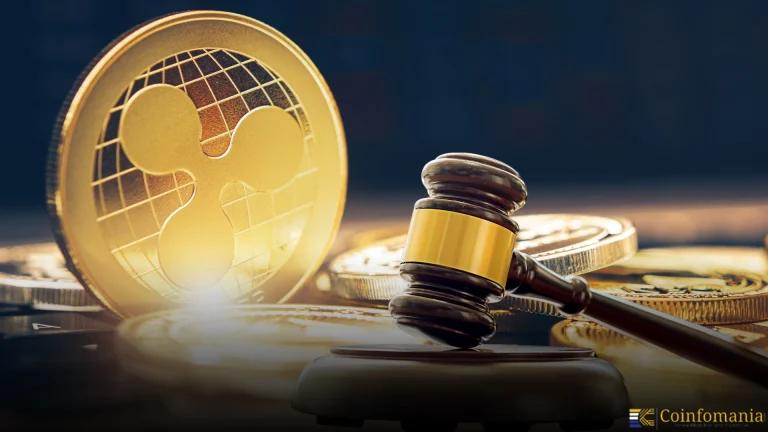Crypto Regulation in Turkey
In 25 Turkey’s stance on cryptocurrencies is changing in an important way. For years, people have known the country for being an epicenter of crypto usage by its user base; it is getting closer to being more global in the standards of the European Union’s Markets in Crypto-Assets (MiCA) framework while implementing more rigorous regulations, […]

In 25 Turkey’s stance on cryptocurrencies is changing in an important way. For years, people have known the country for being an epicenter of crypto usage by its user base; it is getting closer to being more global in the standards of the European Union’s Markets in Crypto-Assets (MiCA) framework while implementing more rigorous regulations, based on licensing, anti-money laundering (AML) and compliance.
These changes are taking place as Turkey aims to stabilize its economy and strengthen its international financial reputation, after it was placed on FATF (Financial Action Task Force) gray list back in 2021. While Turkey’s use of crypto has been fueled by its cryptocurrency tax, high inflation and a dropping lira as well has led millions of Turks to embrace crypto as a hedge against uncertainty.
While Turkey is seeking to encourage innovation and at the same time cracking down on illicit activity. Building a picture of this rapidly changing framework is key to aiding investors, businesses and users to maneuver the risks and rewards of being a participant in one of the world’s most vibrant crypto markets as crypto becomes an integrated component of the global financial system.
Historical Context
Over the past few years, Turkey’s relationship with cryptocurrency has gone from nothing to developing fast. In its early days, the activity of the crypto was unregulated and the adoption of its use was rapid. More than five million Turks were estimated to have crypto assets by 2020 due to rising inflation coupled with an increasing distrust in traditional financial systems.
However, in 2021 the government made its first major crypto regulatory move, banning crypto payments on grounds of money laundering and consumer protection. Later that year, it also introduced AML legislation that mandates exchanges and service providers to put in place Know Your Customer (KYC) policies and report suspicious transactions.
Worsening economic conditions took place throughout the years of 2022 and 2023. However, inflation soared to 85.5% and the Turkish lira almost lost 60% of its value. With these pressures, more and more citizens were pushed into cryptocurrencies such as Bitcoin and stablecoins that are recognized as safe stores of value.
In July of 2024, the Turkish government passed a main amendment to the Capital Markets Law to create a structure for this growing market. This brought in a formal licensing regime for Crypto Asset Service Providers (CASPs). Companies also had to pay a 2% annual fee on their trading income and meet strict operational standards as well as independent auditing by Tübitak, Turkey’s top scientific institution.
The new system attracted over 80 exchanges, including global platforms such as Binance, OKX and Bybit, to apply for licenses — a strong show of market support despite the additional regulatory burden.
At the same time, the government started contemplating crypto taxation. Profits from crypto trading are untaxed as of late 2024, but a 0.03% transaction tax suggested by authorities will also yield over 3.7 billion Turkish lira annually and be included in post-earthquake fiscal recovery plans, authorities said.
Regulatory Framework
Now, Turkey’s crypto regulations are focused on these two authorities.
- Capital Markets Board (CMB):
The CMB grants licenses for crypto companies as well as requires them to comply with financial standards. All CASPs will be required to pay a 2% fee on trading income and meet infrastructure and security requirements that will be audited by TÜBİTAK under 2024 regulations.
- Financial Crimes Investigation Board (FCIB):
Law No. 5549 places the AML enforcement under the supervision of the FCIB. And in February next year, new rules come into force demanding crypto companies conduct identity verification for any exchange of more than 15,000 TRY (around $425) with a Turkish citizen. Firms must suspend the exchange of trading activity with deficient user info and must monitor in real-time.
Together, these agencies make sure crypto platforms do business transparently and in alignment with international AML standards. Additionally, the Central Bank of Turkey and the Ministry of Treasury and Finance play advisory roles in broader digital finance policy.
ICOs and STOs are legal, but they are under the CMB’s domain and they must comply with certain rules for the sake of the investors. As of now, token offerings are very much restricted but they’re growing.
Turkey’s Crypto Policies
Even after Turkey’s tightening of its regulations, the country has one of the highest crypto adoption rates in the world. Despite this, crypto is not legally regarded as legal tender, and the use of crypto to pay forfeited last year.
Crypto is mainly used by citizens for investment, trading and preserving value, not for daily purchase. While businesses cannot legally accept crypto for buying products or services, a lot still make it accessible through crypto ATMs and exchange integrations.
Taxation and CBDC Status
As of early 2025:
- The finalization of the proposed transaction tax occurs, individuals do not pay taxes for crypto gains.
- However, if you are a crypto trader or trade using any digital assets, your business is liable to adhere to the standard tax rules.
- Although there is no digital lira, the Central Bank of Turkey is researching a central bank digital currency (CBDC).
Mining
There are no regulations or limits at the national level to crypto mining. Yet discussions have emerged for monitoring its energy consumption based on rising global concerns.
Country’s Approach to Crypto Innovation
Even though Turkey is regulating, they have not created dedicated frameworks to boost blockchain innovation. Incubators or accelerators are totally absent from the USSR’s history: there are no regulatory sandboxes, startup friendly licensing and experimental zones as in the United Kingdom, Switzerland, or Singapore.
However, innovation is still occurring:
- Crypto related services are integrated by banks and fintech companies.
- This crypto is being explored by retailers and vendors as an investment.
- Blockchain is being researched by the government for something similar to identity verification and logistics systems.
Although there is no formal government support for blockchain startups, the private sector is slowly entering, and at some point, blockchain startups will have supportive environments to thrive upon and hence opportunities for developers and entrepreneurs willing to work through the regulatory framework.
Notable Challenges and Issues
Turkey’s crypto regulations are not an ordinary case:
- Uniform Enforcement, Limited Flexibility:
The approach by the regulatory body at the national level is centralized and creates uniformity but falls short on flexibility, which is the only thing that can be used to support early stage innovation.
- DeFi and Anonymous Transactions:
The space is still classified as a gray area. This leaves enforcement gaps on the non custodial wallet and anonymous trading space.
- Public Trust and Skepticism:
For many young people in Turkey, crypto is something that will help pull them out of a financial hole. Mainstream media coverage, however, has brought focus on scams and the high volatility in the market, making older generations, and those who are less tech savvy, uneasy.
- Balancing Global Standards Against Local Needs
Turkey is trying to get itself out of the FATF gray list and align itself with the EU’s MiCA framework while facing domestic demand for financial freedom as the economy deteriorates.
Key Regulatory Trends and Future Outlook
The trend clearly is that in Turkey, tighter regulation is here to stay. Yet there’s also momentum to fine-tune these laws so as to safeguard investors and provide for market growth.
Key trends to watch:
- Implementation of licensing and secondary regulations through 2025.
- By the end of this year, transaction–based crypto taxation.
- Increased scrutiny of DeFi and cross-border platforms.
- The Central Bank ongoing research with regards to a digital Turkish lira (CBDC).
Despite being more cautious than permissive, the crypto sector will not wither away in Turkey as there is a very large crypto user base that demands the middle ground as adoption keeps on growing.
Conclusion
As of 2025, Turkey’s attitude towards cryptocurrency fell somewhere in the spectrum between the above two things but was still evolving. New laws focusing on licensing, AML as well as user verification are designed to bring order to a fast-rising market, all the while keeping the country’s allure for digital asset users.
A message to the investors, businesses, and users: Compliance is key, but there are still opportunities. Turkey may indeed develop itself as a stable yet active crypto market in the region, as regulations mature and potentially soften to support innovation.
Frequently Asked Questions (FAQs)
1. Is cryptocurrency legal in Turkey?
Although it is legal to buy and own cryptocurrency, it is not okay for payment.
2. Are crypto exchanges required to register?
Yes. The CMB only allows exchanges who register and pay a 2% trading income fee.
3. Do you need an identity verification to make crypto transactions?
As of February 2025, that is, for transactions above 15,000 TRY (~$425).
4. Is there any cryptocurrency profit tax?
The tax is not being suggested yet for individuals, but it is being considered at 0.03% for transactions.
5. Is mining legal in Turkey?
Yes. This activity is allowed and is not being regulated nor taxed at the national level.
6. What are the penalties for non-compliant crypto businesses?
AML violations come with fines, license suspensions, and even criminal charges.
7. Is Turkey introducing a central bank digital currency (CBDC)?
No, it does not, but work is being done on a digital lira.
8. Is there any possibility for foreign exchange to take place in Turkey?
Yes, provided that they must apply for a local license with the CMB.
9. How are crypto startups able to innovate in the country? Are there innovation hubs or sandboxes?
Turkey has not implemented regulatory sandboxes.
10. Are Turks still interested in crypto?
Yes, despite Turkish regulations, millions of Turks have continued using crypto.
Follow us on Google News
Get the latest crypto insights and updates.
Related Posts

Ripple Highlights Custody as Key to $18.9T Tokenized Assets by 2033
Shweta Chakrawarty
Author

Hong Kong SFC Issues New Custody Rules for Crypto Platforms
Shweta Chakrawarty
Author

South Korea and Vietnam eye $150B trade despite Trump tariff
Shweta Chakrawarty
Author